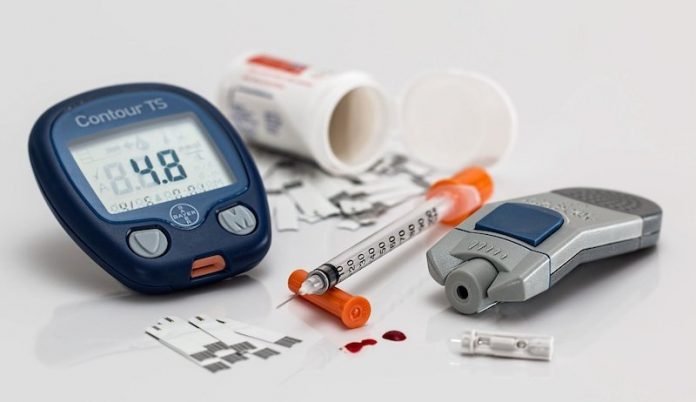
Scientists from Oregon State University found that a few organisms in the gut microbiome play a key role in type 2 diabetes.
The finding opens the door to possible probiotic treatments for a serious metabolic disease affecting roughly one in 10 Americans.
The research is published in Nature Communications and was conducted by Andrey Morgun et al.
Formerly known as adult-onset diabetes, type 2 diabetes is a chronic condition affecting the way the body metabolizes glucose, a sugar that’s a key source of energy.
For some patients, that means their body resists the effects of insulin—the hormone produced by the pancreas that opens the door for sugar to enter cells.
Other patients don’t produce enough insulin to maintain normal glucose levels.
In either case, sugar builds up in the bloodstream and if left untreated the effect is impairment of many major organs, sometimes to disabling or life-threatening degrees.
A key risk factor for type 2 diabetes is being overweight, often a result of a western diet in combination with low physical activity.
The so-called ‘western diet’ – high in saturated fats and refined sugars—is one of the primary factors. But gut bacteria have an important role to play in modulating the effects of diet.
The human gut microbiome features more than 10 trillion microbial cells from about 1,000 different bacterial species.
Dysbiosis, or imbalance in the microbiome, is commonly linked to detrimental effects on a person’s health.
In the study, the team found that individual members of the microbial community, altered by diet, might have a significant impact on the host.
They examined host-microbe interactions under a western diet. The scientists identified four operational taxonomic units that seemed to affect glucose metabolism.
The first two microbes are considered potential ‘improvers’ to glucose metabolism, and the other two potential ‘worseners,’.
The overall indication is that individual types of microbes and/or their interactions, and not community-level dysbiosis, are key players in type 2 diabetes.
The scientists also found correlations between human body mass index and abundance of the four bacteria—more of the improvers meant a better body mass index, more of the worseners was connected to a less healthy BMI.
The team says the findings reveal potential probiotic strains for the treatment of type 2 diabetes and obesity.
That means an opportunity to develop targeted therapies rather than attempting to restore ‘healthy’ microbiota in general.
If you care about diabetes, please read studies about the normal blood sugar for people with diabetes, and findings of the best weight loss option for people with diabetes.
For more information about diabetes, please see recent studies about berry that could help prevent diabetes, cancer, and results showing scientists find a critical trigger for type 2 diabetes.
Copyright © 2022 Knowridge Science Report. All rights reserved.



